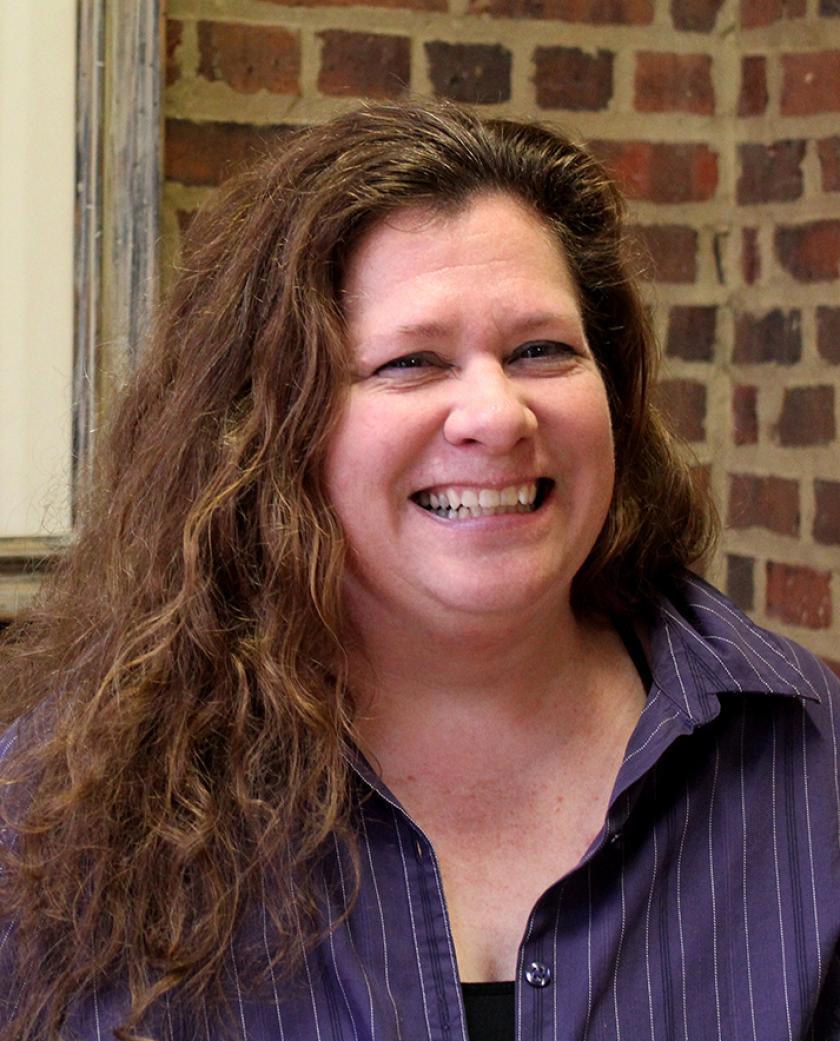
S.K. (Kayleigh) Van Poolen is a Certificate of Advanced Study (CAS) student who has advanced degrees in political science, urban planning, information sciences, and law. On November 15, Van Poolen's talk, "Started with a Hurricane Named Katrina," won third place at the 2016 Research Live! competition sponsored by the Graduate College. In the Q&A below, she explains her interest in social and economic justice and her decision to return to Illinois.
Why did you choose the iSchool at Illinois for your MS/LIS, and what made you decide to return for your CAS?
How I ended up in the iSchool in the first place is a bit of a story. I took an hourly position in the Main Library and was asked to stay on, working on several projects. I intended to head off to law school, so I planned to turn down the Library’s offer initially. But after some discussions with my supervisor, I was convinced to stay and completed my master’s at the iSchool while working at the Library.
Then I headed to law school, and Hurricane Katrina hit the very first weekend of classes. Because of Katrina, I started extensive work related to social and economic justice. However, upon graduation, life took me for a ride, and I found myself wandering and still searching. As I told one of my iSchool professors, I returned to what I knew, the iSchool. And although many students take the step into the CAS realm shortly after their master’s work, I just did it quite a bit later—over six years later. And when one takes a risk, it helps to take that risk at a school with reputation I knew and a curriculum that had some familiarity.
What particular topics interest you most?
I pursued social and economic justice projects while in law school and will continue to do so with information science. Thanks to a meeting that included a data science related topic, I have added data science to my interests, building on my days in IT and project management as well as my academics in law. I see data science as a critical aspect of social and economic justice and intend to combine both worlds whenever possible.
What do you do outside of class?
I work, and I research. After being out of academics for a while, I spend little time doing anything but class and research-related activities. I took on a practicum this semester, in addition to a full-time course load and GA position with the Law Library, so that has taken up a substantial amount of time. I have spent any available time on research-related activities, pursuing grants, presentation opportunities, conferences . . . pretty much everything, outside of family, is focused on research and job possibilities. In the past, when time permitted, I painted, mostly with acrylic and watercolor; designed jewelry; and volunteered with arts, sciences, and various community-oriented programs. I also play the bass, although that is strictly an in-house activity at this point.
What career plans or goals do you have?
Ideally, I would love to work for a social/economic justice organization, independent or part of a University, to advocate as well as support their research needs. I am also looking for law schools that have active pro bono and public interest law programs where I can support related research needs. The legal field and law schools are starting to grasp data; instead of limiting data science to the benefit of firms, we need to be outward-looking and use data science to determine policy and legislation as well as advocacy that supports our communities. One thing my journey has taught me is this: you can plan and plan and plan . . . and then something entirely different takes place. Essentially, I am open to possibilities because very little of what I have ever planned worked out "according to plan."